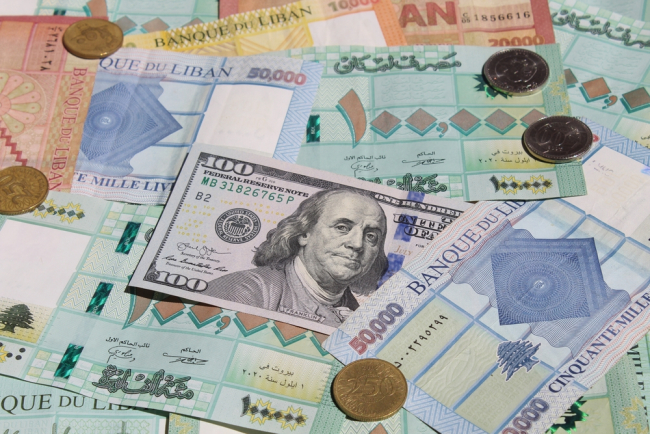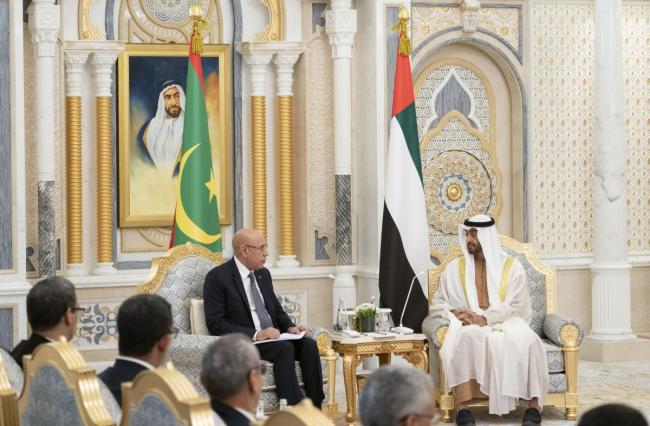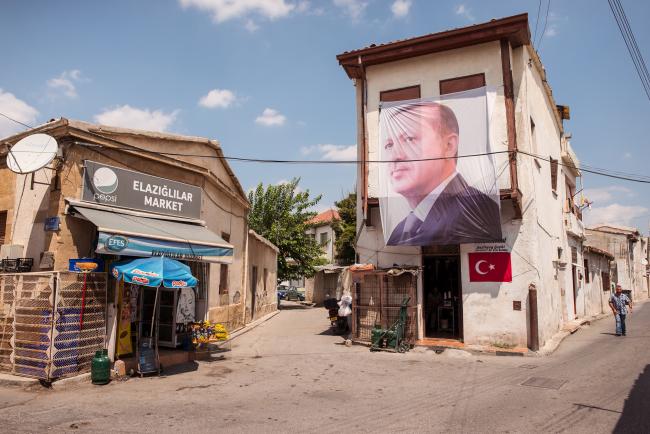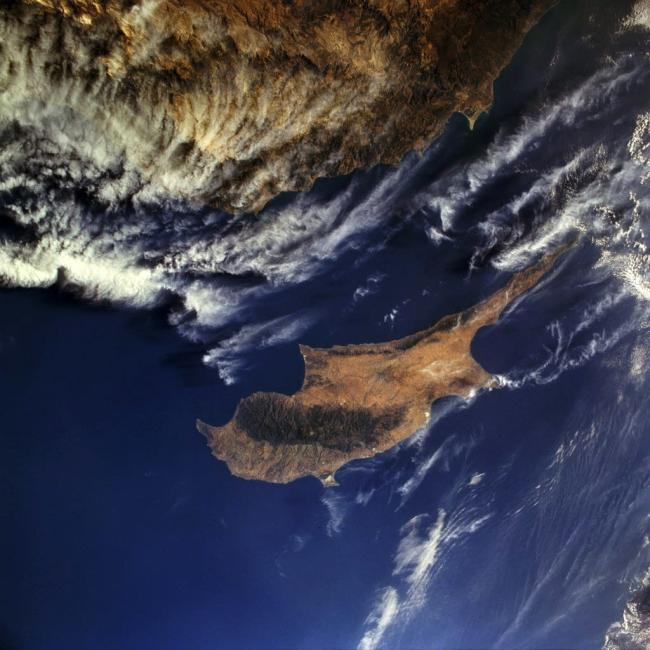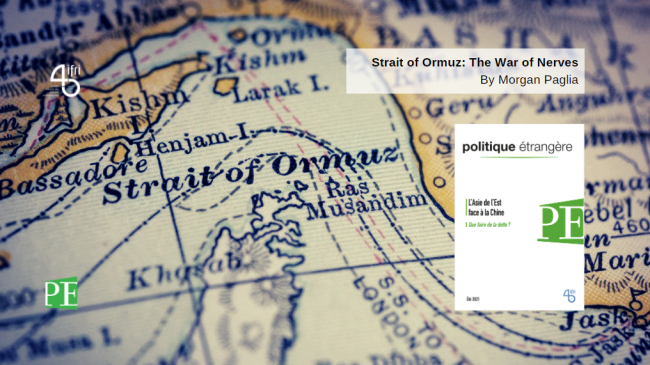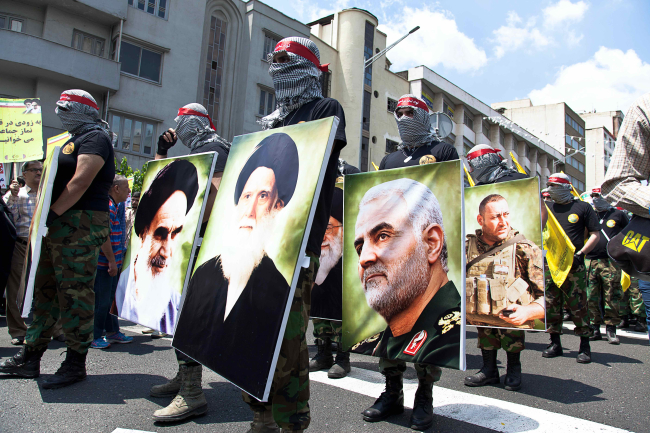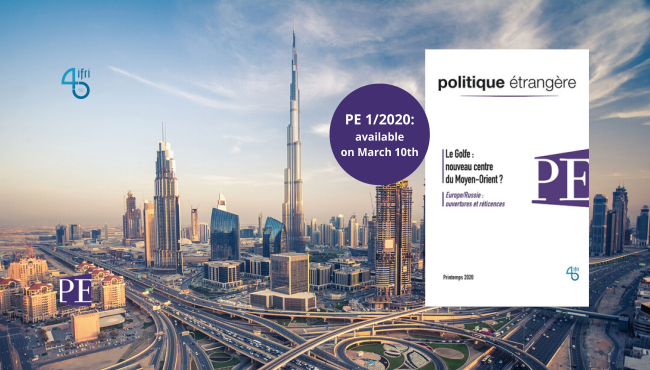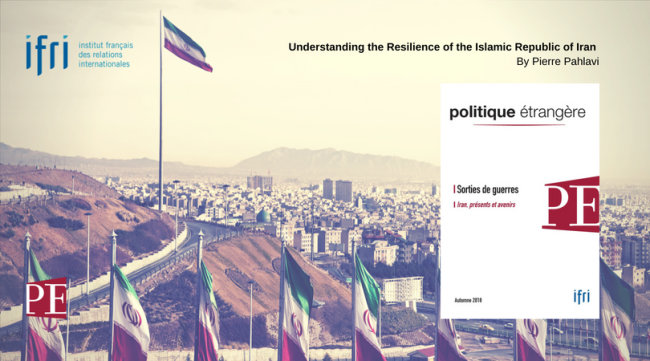Middle East
Analysis of crisis factors in the Middle East, transformed by the war in Syria and the persistence of the Israeli-Arab conflict, where issues of sovereignty and borders complicate humanitarian problems.


Ukraine: Between Two Peaces?
We have reentered the world of war. In its first special report, Politique étrangère offers a range of in-depth analyses of the military and political dynamics at work in a Europe that has just woken up from its dream of enduring peace. The direct confrontation between Ukraine and Russia has pitted two military and defense systems against each other, whose asymmetrical logics, strengths, and weaknesses we are discovering as the conflict unfolds.
Lebanese Banking Crisis: The Systemic Workings of a Wreck
The United Arab Emirates in Africa: The Partly Thwarted Ambitions of a New Regional Player
The United Arab Emirates (UAE) has long-standing ties with African countries, but the implementation of a genuine Africa policy dates back only about 15 years.
Turkey's Method in the Mediterranean: The Hold over Northern Cyprus
On July 20, 2021, Turkish President Recep Tayyip Erdoğan celebrated with his Turkish Cypriot counterpart Ersin Tatar the 47th anniversary of the Turkish military intervention in Northern Cyprus. This ceremony marks the strategic reinvestment of the Cypriot file by Turkey.
Back to “the Tradition”: Turkey’s Changing Position from a Federal to a Two-State Solution to the Cyprus Conflict
When it came to power in 2002, the Justice and Development Party (AKP) defended a bicommunal, federal solution for Cyprus, and supported the Annan Plan to reunite the island.
Strait of Hormuz: The War of Nerves
In the event of a major conflict, Iran could decide to close the Strait of Hormuz, which would cause a global energy crisis.
Israel-Africa Relations: What Can We Learn from the Netanyahu Decade?
Since he came to power in 2009, Israel’s Prime Minister Benjamin Netanyahu has not made Israeli-African relations a priority in his foreign policy.
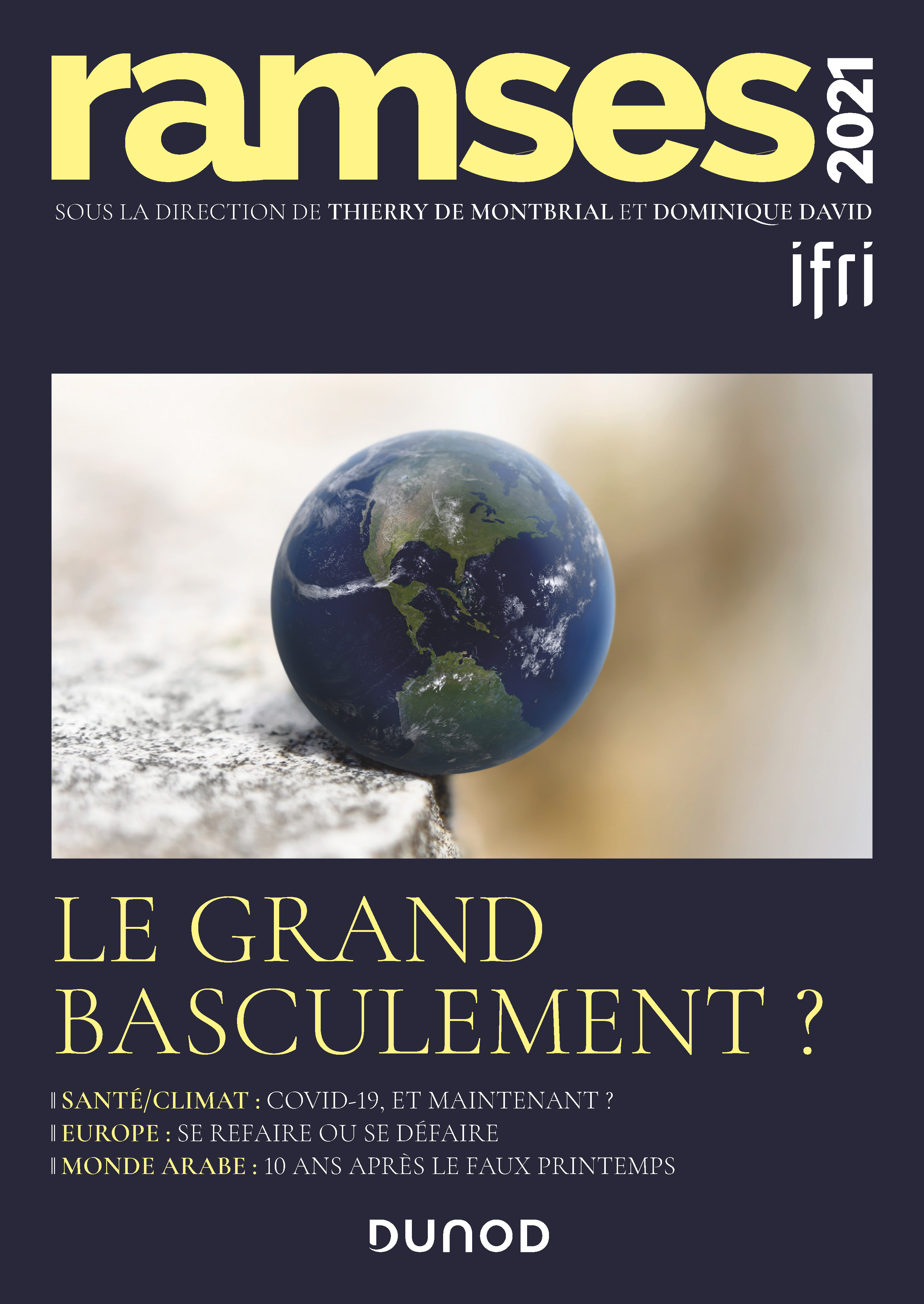
RAMSES 2021. At the Edge?
RAMSES 2021. At the Edge?, written by Ifri's research team and external experts, offers an in-depth and up-to-date analysis of geopolitics in today’s world.
L’Iran et ses “proxys” au Moyen-Orient. Les défis de la guerre par procuration
If Iran is a key player in the Middle East, it is in no small part because of its extensive network of armed militia, which it uses as proxies.
The Gulf: New Center of the Middle East?
Amid the shift in major powers, the Persian Gulf is asserting its position at the heart of the Middle East.

RAMSES 2021. At the Edge?
RAMSES 2021. At the Edge?, written by Ifri's research team and external experts, offers an in-depth and up-to-date analysis of geopolitics in today’s world.
L’Iran et ses “proxys” au Moyen-Orient. Les défis de la guerre par procuration
If Iran is a key player in the Middle East, it is in no small part because of its extensive network of armed militia, which it uses as proxies.
Understanding the Resilience of the Islamic Republic of Iran
The leaders of Iran nurture regional ambitions, and are conscious of the limits of their country’s power.

Middle East, the new "Great Game"
Will a divided Middle East become the center of a new “Great Game”? The world’s global powers are aligned in it: the United States, falsely tempted by retraction; Russia, establishing its position in an unexpected state of play, France, destabilized by the contradictions of its own policy… In addition are tussles for regional hegemony between Iran, Turkey, and Saudi Arabia.

Activists Without Borders
Various associations organise trips to Israel and/or to the Palestinian Territories. Someone who has no previous knowledge of the Near East and who takes part in a journey organised by a pro-Israeli group, would return to France with a very different vision of the Israeli-Palestinian conflict to that of someone who had travelled with a pro-Palestinian group.
For more information concerning the complete work, please click on this link.

The Two-State Solution is Still Possible
Many Israelis and Palestinians contest the ‘two-state solution’.

John Kerry in the Middle East: from Weak to Hopeful Diplomacy?
In 2013, Barak Obama and John Kerry managed, not without difficulty, to steer Israeli and Palestinian leaders back to peace negotiations. At the same time, Washington re-established dialogue with Tehran in talks aimed at finding a solution to the Iranian nuclear problem.
Religion and Politics in Egypt Today: Ideological Trends and Future Prospects
The dynamics of Muslim-Copt relations and how they are managed by the Church and the State are part and parcel of Egypt’s transition post-Mubarak because they underlie the discussions concerning Egypt’s future as a civil State. The treatment of Copts and other religious communities under a new government will be a key indicator of the maturity of Egypt’s democratic transition.
U.S. Foreign Policy and the Israeli-Palestinian Conflict: A View from Palestine
How will the US respond to the changing Palestinian and Arab paradigm?
Support independent French research
Ifri, a foundation recognized as being of public utility, relies largely on private donors – companies and individuals – to guarantee its sustainability and intellectual independence. Through their funding, donors help maintain the Institute's position among the world's leading think tanks. By benefiting from an internationally recognized network and expertise, donors refine their understanding of geopolitical risk and its consequences on global politics and the economy. In 2025, Ifri supports more than 80 French and foreign companies and organizations.









